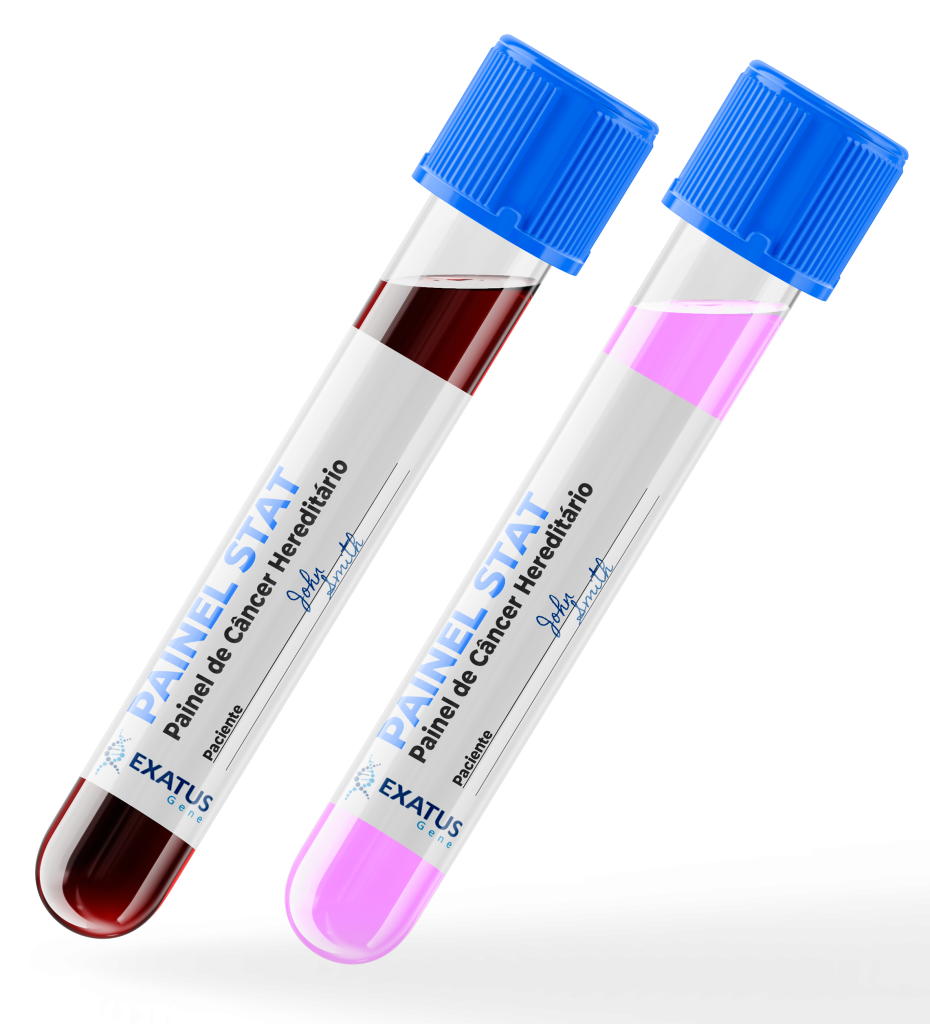
The Hereditary Breast Cancer Panel analyzes genes with well-established evidence of association with a significantly increased risk of developing breast cancer. Pathogenic variants in the analyzed genes can inform risk-reducing surgical options, such as bilateral adenomastectomy.
After the panel analysis, it is possible to expand the evaluation to other hereditary predisposition genes at no additional cost (within 30 days).
24% of women have a family history of cancer.
80% of women with a formal indication for genetic evaluation have never been advised by their doctors to seek genetic counseling.
Bellcross CA, Peipins LA, McCarty FA, Rodriguez JL, et al. Genet Med. Characteristics associated with genetic counseling referral and BRCA1/2 testing among women in a large integrated health system. 2015 Jan;17(1):43–50.
53% of patients need to change their surgical plan after undergoing the test.
Risk factors for cancer. National Cancer Institute. 2015. Accessed June 19, 2023.
Consider this test in the following cases:
The panel includes:
ATM, BRCA1 , BRCA2, CDH1, CHEK2, PALB2, PTEN, STK11, TP53
The methodology used for this test is as follows:
Blood: No fasting required.
Saliva: 1 hour fasting from liquids and food.
Up to 10 calendar days
Medical request.

| Type | Description |
| Technique | NGS + CNVs |
| Depth | >100x |
| Type | Description |
| Coverage | >99% of target regions |
| VuS Resolution | Sanger, MLPA |

Main Office Rua Bento Gonçalves, 59, Room 802 — Centro, Marau, RS — 99150-000
Porto Alegre Office Rua Gomes Jardim, 301 , Room 918/909 — Santana, Porto Alegre, RS — 90620-130